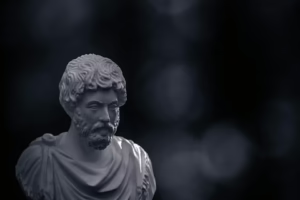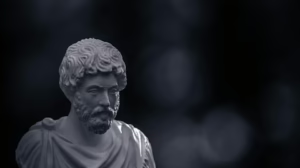Exploring Existentialism: Key Texts That Challenge Our Beliefs
Existentialism, a philosophical movement that emphasizes individual existence, freedom, and choice, has captivated thinkers and readers since the 20th century. Grounded in the subjective experience of life, it presents a framework for grappling with the profound questions of meaning, alienation, and the human condition. This article delves into key texts that encapsulate existentialist thought, providing a lens through which we can better understand our beliefs and societal structures.
Origins of Existentialism
Existentialism did not emerge in a vacuum; it is shaped by various philosophical antecedents, including Kierkegaard’s emphasis on individual choice and Nietzsche’s proclamation of the “death of God.” The term “existentialism” gained prominence in the 20th century, particularly through the works of philosophers like Jean-Paul Sartre, Simone de Beauvoir, and Martin Heidegger. These thinkers argued that existence precedes essence, suggesting that individuals must forge their path in a world devoid of predetermined purpose.
Key Themes in Existentialism
Before diving into specific texts, it’s essential to identify some of the central themes that permeate existentialist thought:
- Freedom and Responsibility: Existentialists often emphasize the burden of freedom that comes with existential authenticity.
- Absurdity: The idea that life is inherently meaningless, requiring individuals to create their structures and meanings.
- Alienation: A recurring motif that highlights the individual’s estrangement from society and oneself.
- Authenticity: The pursuit of a life true to oneself, resisting societal pressures to conform.
- Bad Faith: A concept particularly linked to Sartre, where individuals deceive themselves to escape the anxiety of freedom.
These themes invite readers to confront their beliefs, challenge societal norms, and actively participate in defining their essence.
Key Texts in Existentialism
1. “Being and Time” by Martin Heidegger
Heidegger’s magnum opus, published in 1927, is a foundational text in existential philosophy. The work focuses on the concept of Being and the individual’s experience of time and existence. Heidegger introduced the notion of “Dasein,” which refers to the unique way human beings exist in the world. He posits that understanding one’s own existence involves confronting the inevitability of death, leading to an authentic way of being.
Heidegger’s exploration of “thrownness” and “being-toward-death” elucidates human beings’ fundamental condition. By recognizing our mortality, we are called to embrace our freedom and make authentic choices. This confronts conventional beliefs about safety and certainty, urging readers to grasp the transformative potential of existential realization.
2. “Existentialism is a Humanism” by Jean-Paul Sartre
Sartre’s work, originally a lecture in 1945, serves as a manifesto for existentialism. He famously declares that “existence precedes essence,” emphasizing human beings’ unique freedom to define themselves through choices. Sartre argues that individuals are not bound by a predetermined essence; instead, they are responsible for their actions and must bear the burden of this freedom.
In this work, Sartre critiques deterministic philosophies and examines the implications of radical freedom, providing a compelling call to authenticity. He challenges readers to recognize that avoiding responsibility leads to “bad faith,” a self-deceptive mode of existence. The text becomes a powerful invitation to embrace the chaos of life and actively participate in shaping one’s destiny.
3. “The Ethics of Ambiguity” by Simone de Beauvoir
Published in 1947, de Beauvoir’s work is an essential text in existentialist ethics. She explores the intricacies of freedom, responsibility, and the interconnectedness of human beings. De Beauvoir writes about the ‘ambiguity’ of life, where the individual must navigate conflicting desires and societal constraints.
By emphasizing the role of the Other in defining oneself, she critiques traditional notions of autonomy and independence. De Beauvoir’s existentialism acknowledges the complexities of human relationships, stating that one’s freedom is interdependent with others. Her work challenges readers to consider how their beliefs and choices impact not only themselves but the broader societal fabric.
4. “Nausea” by Jean-Paul Sartre
“Nausea,” Sartre’s first novel, published in 1938, encapsulates the existential crisis faced by the protagonist, Antoine Roquentin. Through his experiences, the narrative explores themes of absurdity, alienation, and the search for meaning. Roquentin grapples with the disorientation and discomfort of existence, leading him to confront the emptiness underlying societal norms.
Sartre uses vivid descriptions of the physical world to evoke a sense of nausea, symbolizing the protagonist’s confrontation with the absurdity of life. The text invites readers into a visceral exploration of existence, compelling them to reflect on their own beliefs and the structures they inhabit.
5. “The Myth of Sisyphus” by Albert Camus
In this philosophical essay published in 1942, Camus confronts the absurdity of life and proposes a response to it: rebellion. Through the mythological figure of Sisyphus, condemned to roll a boulder up a hill only to watch it roll back down, Camus illustrates the futility of human existence. Rather than despair, he advocates for embracing the absurd and finding meaning in the struggle itself.
Camus argues that recognizing life’s inherent meaninglessness allows individuals to create value in their lives through perseverance and passion. This perspective challenges traditional beliefs about finding inherent meaning, urging readers to construct their significance in a seemingly indifferent universe.
6. “The Stranger” by Albert Camus
In “The Stranger,” published in 1942, Camus presents the story of Meursault, an emotionally detached protagonist who embodies existentialist themes. The novel begins with Meursault attending his mother’s funeral but exhibits an alarming indifference to her death. As the narrative unfolds, Meursault faces trial not just for murder but for his failure to adhere to societal expectations.
Camus uses Meursault’s character to illustrate the absurdity of life and the consequences of living authentically in a conformist world. Meursault’s eventual acceptance of his fate becomes a powerful exploration of the human condition, challenging readers to reflect on their beliefs about morality and societal norms.
7. “The Ethics of Ambiguity” by Simone de Beauvoir
In this work, de Beauvoir examines the complexities of freedom and ethical decision-making in a world rife with contradictions. While the quest for authenticity is paramount, she emphasizes the importance of mutual recognition and understanding among individuals. De Beauvoir asserts that one’s freedom cannot exist in isolation; it is bound to the freedom of others.
Through this lens, she critiques traditional ethical frameworks that prioritize independence over interdependence. This text challenges readers to reconsider their moral beliefs and to embrace a more nuanced understanding of freedom that acknowledges the interconnectedness of human beings.
8. “Fear and Trembling” by Søren Kierkegaard
While Kierkegaard is often viewed as a precursor to existentialism, his work significantly influenced later existentialist thinkers. In “Fear and Trembling,” published in 1843, he analyzes the biblical story of Abraham and Isaac to illustrate the tension between faith and ethics. Kierkegaard introduces the concept of the “leap of faith,” where individuals must make choices that transcend rational understanding.
Kierkegaard’s exploration of angst and despair highlights the inner conflict faced by those seeking authentic existence. He challenges readers to confront their beliefs about faith and morality in a world where certainty is elusive.
The Impact of Existentialism
Existentialism has left an indelible mark not only on philosophy but also on literature, psychology, and art. Its emphasis on individual experience and the quest for authenticity resonates across various domains. Writers such as Kafka, Beckett, and Camus explored existential themes in their works, while psychologists like Rollo May and Viktor Frankl incorporated existentialist ideas into therapeutic practices.
Moreover, existentialism has shaped contemporary discussions surrounding identity, ethics, and social justice. The focus on individual agency and the rejection of deterministic frameworks aligns with movements advocating for marginalized voices and the empowerment of individuals.
Personal Reflections: Challenging Our Beliefs
Engaging with existentialist texts invites readers to reflect on their beliefs and confront the fundamental questions of human existence. Key themes such as freedom, responsibility, and authenticity resonate deeply in a world often characterized by societal pressures and conformity.
As we navigate the complexities of our individual lives, existentialism challenges us to embrace our freedom, acknowledge our choices, and seek meaning in a seemingly indifferent universe. Each text serves as a catalyst for introspection, inviting readers to confront their fears, desires, and the nuances of their beliefs.
Conclusion
Existentialism’s exploration of the human condition has provided valuable insights into the nature of existence, freedom, and responsibility. Key texts from thinkers like Sartre, de Beauvoir, Heidegger, and Camus challenge our beliefs and compel us to engage with the profound uncertainties of life. As we continue to grapple with the complexities of existence, these works offer timeless guidance for navigating the human experience with authenticity and courage.
By embracing the core tenets of existentialist philosophy, we can cultivate a deeper understanding of ourselves and the world around us. This journey into the realm of existentialism serves not as a definitive guide but as an ongoing exploration of what it means to be human. In questioning our beliefs, we honor the essence of existentialist thought: the relentless pursuit of understanding and the courage to forge our path in a world marked by ambiguity and uncertainty.
References
- Sartre, Jean-Paul. Existentialism is a Humanism. Yale University Press, 2007.
- Heidegger, Martin. Being and Time. HarperCollins, 1962.
- Camus, Albert. The Myth of Sisyphus. Vintage, 1991.
- Beauvoir, Simone de. The Ethics of Ambiguity. Open Road Media, 2014.
- Kierkegaard, Søren. Fear and Trembling. Penguin Classics, 2004.
- Sartre, Jean-Paul. Nausea. New Directions, 2007.
- Camus, Albert. The Stranger. Vintage, 1989.


























Add Comment